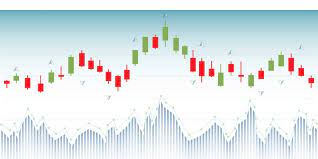Although most newbies think that, to succeed in this sphere, they must dedicate enough time to self-education in the first place, in practice, excessive emotions can wipe away all their efforts. Thus, you had better learn how to control your feelings and rely on pure analysis only from the very start.
Trading is based on the scrupulous market analysis and deliberate calculations that take place inside a trader’s head. The problem is that, when considering a deal or a position, he also faces a bunch of emotions that come from his head as well. Hence, his thoughts and emotions get mixed and tangled with each other so that he can easily confuse them. That may result in such situations:
- A trader fails to open or close a position at the most beneficial moment, although there are corresponding technical signals.
- He chooses to increase or decrease his bet based on his fears or vice versa euphoria.
- He pays too much attention to minor factors and ignores major signals.
- Due to stress or strong emotions, he makes a mistake and loses money, although his calculations are absolutely correct.
Thus, we would recommend you explore the most common problems in trading psychology:
- Greed. Although it is normal to seek big profits, when a trader gets overwhelmed by this feeling, it may push him to make unwise decisions. For example, if he is interested in some stock and sees it grow in price consistently, he may decide to buy a large volume before the price goes up again. But he usually ends up with huge losses as price increases are usually followed by rapid drops.
- Fear. When the value of some asset goes down, many investors rush to get rid of it in panic, although there is a good chance that it will bounce back up again over some time.
- Prejudices. They are most often based on one’s personal experience. For example, you may fail to enter a profitable position despite a favorable market situation because you have lost a big sum on an identical trade some time ago. Or you may refuse to abandon a failing strategy based on the fact that it used to work well before.
How to overcome such unnecessary feelings?
- Study your strong and weak traits with a personality test.
- Compile a trading plan. Create detailed instructions for every possible situation.
- Follow your plan despite the emotions.
- Create a journal. Describe your emotions, thoughts, and decisions in exact situations and analyze them afterward.
- Do not make a big deal of every win or loss.
In sum, trading is connected with strong stresses, so you must learn how to control your emotions and prevent them from influencing your decisions and results. Hopefully, now, you know where to start from.


